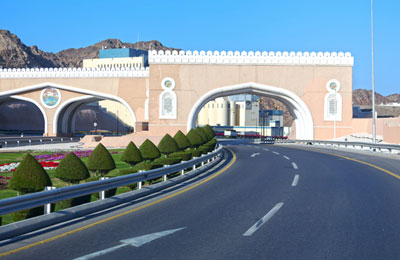
Oman spending growth to slow down
Muscat, January 2, 2014
Oman's 2014 budget plan will slow growth in state spending as the government grapples with rising pressure on its finances, Financial Affairs Minister Darwish Al-Balushi said on Thursday.
"The continuation and stability of growth require a careful examination of current financial reality," Al-Balushi told a news conference, stressing the need to keep state spending within "sustainable limits".
His budget plan appeared to mark a shift towards more cautious fiscal policy. Oman boosted expenditure sharply between 2011 and 2013, spending on welfare programmes, public sector wages and job creation to ensure social peace after scattered street protests demanded more jobs and an end to corruption.
This put state finances under pressure. The International Monetary Fund warned Oman would need to reform its spending and find new revenue sources in the next few years to avoid falling into a pattern of ballooning budget deficits.
The 2014 budget plan seems to heed this warning. State spending this year is projected at 13.5 billion rials ($35.1 billion), up just 5 percent from the original plan in the 2013 budget, which envisaged a 29 percent leap from 2012.
Revenues in 2014 are estimated at 11.7 billion rials, up 4.5 percent from the 2013 plan. Though this year's budget projects a deficit, it conservatively assumes an average oil price of $85 a barrel; Brent crude is currently trading around $111.
This suggests Oman's revenues - about three-quarters of which come from oil - could again be much larger than projected this year and the government may again post a surplus.
Nevertheless, the government realises that to have stable finances in the long term, it needs to increase non-oil revenues, diversify the economy beyond oil and encourage more foreign and domestic investment by private firms, Al-Balushi said.
According to the latest official data, actual government spending totalled 11.20 billion rials in the first 10 months of 2013 against revenues of 11.74 billion rials, leaving Oman with a budget surplus of 544 million rials - well down from a 2.81 billion rial surplus in the same period a year ago.
Al-Balushi said the government planned to borrow 400 million rials this year, including 200 million rials overseas from commercial banks and "strategic partners" such as insurance companies.
Officials had said earlier that Oman might issue its first international bond this year since 1997, but Al-Balushi did not mention this as a possibility.
However, he said the government aimed to conduct part of its domestic borrowing in 2014 in the form of its first issue of Islamic bonds. Oman has lagged other Gulf states in introducing Islamic finance and is working to develop the industry.
Oman is spending billions of dollars on infrastructure projects, such as port facilities and a railway, to diversify its economy. Al-Balushi said such projects would continue but the government hoped to attract more private investment in them.
"Instead of the government carrying the burden of 100 percent of the big projects, the private sector should be allowed and encouraged to take part. This is one way to control expenditures," he said.
He predicted economic growth of 5 percent in both 2013 and 2014, but with the private sector playing an increasing role; non-oil activity is forecast to expand 7.3 percent this year after 5.6 percent last year.
The government has said it will revive its privatisation programme to raise revenue and stimulate the private sector, and is arranging an offer of 19 percent of Oman Telecommunications Co which is expected to raise around $600 million.
But Al-Balushi declined on Thursday to detail further privatisation plans, saying that talking publicly about them might affect the stock market.
He also avoided discussing how the government might increase revenues through new taxes. A state advisory body has suggested Oman should place a 2 percent tax on the billions of dollars which foreign workers send back to their home countries every year, but this could hurt private firms and it is not clear if the government will go ahead with it.
Other Gulf oil exporting countries are also feeling pressure to slow their state spending growth after three years of rapid rises triggered by the Arab Spring uprisings. Last week, Saudi Arabia revealed a 2014 budget which projected the slowest spending rise in a decade. - Reuters







